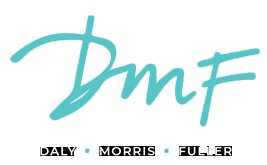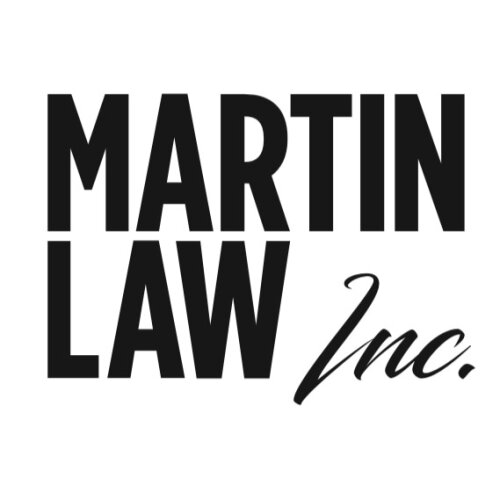Best Structured Finance Lawyers in Westville
Share your needs with us, get contacted by law firms.
Free. Takes 2 min.
List of the best lawyers in Westville, South Africa
About Structured Finance Law in Westville, South Africa
Structured finance is a specialized area of financial law that involves creating complex financial products aimed at managing risk, improving liquidity, and facilitating access to capital. In Westville, South Africa, structured finance deals often include securitization, syndicated lending, asset-backed securities, and repackaging assets. These transactions typically involve multiple parties such as banks, institutional investors, originators, and service providers. Compliance with local regulations and risk mitigation are central to ensuring successful structuring and execution of these financial transactions.
Why You May Need a Lawyer
There are several scenarios where individuals or companies in Westville might require the expertise of a structured finance lawyer. You may need legal advice if you are:
- Participating in or initiating asset-backed finance or securitization transactions
- Need to structure corporate debt or equity in new and innovative ways
- Involved in the process of raising capital for a major project
- Seeking to manage or reallocate business risk effectively
- Negotiating or drafting complex finance documents
- Complying with regulatory requirements or seeking approvals from regulatory bodies
- Facing legal disputes or needing to enforce your rights in structured finance agreements
Local Laws Overview
Key legal aspects relevant to structured finance in Westville, South Africa, are primarily influenced by national regulations and some local municipal by-laws. Notable areas of regulation include:
- National Credit Act (NCA): Governs all credit agreements and protection of consumers in structured finance transactions.
- Companies Act: Sets rules on company structures, governance, and insolvency that can affect structured deals.
- Financial Sector Regulation Act: Oversight by the South African Reserve Bank and Financial Sector Conduct Authority ensures proper conduct and stability.
- Tax Laws: Complex tax requirements relate to the structuring of deals, particularly concerning Value Added Tax (VAT) and income tax.
- Exchange Control Regulations: If the transaction involves cross-border elements, South African Reserve Bank approval may be required.
- Property and Security Laws: Impact how assets can be used as collateral or securitized under local statutes.
Frequently Asked Questions
What is structured finance?
Structured finance refers to highly complex financial transactions designed to meet unique needs, often by pooling assets and redistributing risk. It includes mechanisms such as securitization, collateralized debt obligations, and asset-backed securities.
Who typically uses structured finance in Westville?
Corporations, banks, finance companies, and sometimes government entities use structured finance to access new funding sources, manage risk, or optimize balance sheets.
Is structured finance legal in South Africa?
Yes, structured finance is legal and governed by a network of laws and regulations, including the National Credit Act, Companies Act, and oversight by financial regulators.
What legal risks should I be aware of?
Legal risks include non-compliance with local or national regulations, improper asset transfer, invalid security interests, tax implications, and defaults on underlying assets.
Do I need regulatory approval for structured finance?
Some transactions, particularly those involving cross-border flows or regulated entities, may require approval from the South African Reserve Bank or the Financial Sector Conduct Authority.
How can structured finance help my business?
It can improve liquidity, lower funding costs, diversify investor bases, and isolate risk by allowing greater flexibility compared to traditional finance methods.
What are the costs involved?
Costs may include legal fees, regulatory charges, due diligence expenses, and ongoing servicing or management fees. Transparency over these costs is important before proceeding.
Can individuals access structured finance products?
Structured finance is primarily used by businesses or institutional investors due to the complexity and size of transactions. Retail investors can sometimes access such products through investment funds.
What assets can be securitized?
A variety of assets such as loans, mortgages, leases, receivables, and even future income streams can be securitized under South African law.
How do I choose the right lawyer for structured finance?
Look for a lawyer or firm with demonstrable experience in structured finance transactions, a good understanding of local regulations, and a strong track record in Westville or the broader KwaZulu-Natal region.
Additional Resources
If you are searching for more information or assistance, consider consulting the following resources and organizations:
- South African Reserve Bank - regulates and provides guidance on exchange control and financial market stability
- Financial Sector Conduct Authority - oversees fair conduct in South Africa's financial markets
- National Credit Regulator - ensures compliance with the National Credit Act
- South African Institute of Chartered Accountants (SAICA) - provides expertise on accounting implications
- Law Society of South Africa - directory of qualified lawyers in structured finance
- Westville local municipal offices - for inquiries on property and local regulatory matters
Next Steps
If you think you need legal assistance in structured finance in Westville:
- Identify the nature and scope of your potential transaction or issue.
- Prepare documentation such as company records, contracts, financial statements, and business plans.
- Consult with a lawyer who has experience in structured finance. Make sure they are familiar with both local and national laws.
- Discuss your goals, risks, and compliance obligations with your legal advisor.
- Ensure you understand all costs involved and the legal process ahead.
- Follow your lawyer’s guidance on structuring, regulatory filings, and document execution for your transaction.
Lawzana helps you find the best lawyers and law firms in Westville through a curated and pre-screened list of qualified legal professionals. Our platform offers rankings and detailed profiles of attorneys and law firms, allowing you to compare based on practice areas, including Structured Finance, experience, and client feedback.
Each profile includes a description of the firm's areas of practice, client reviews, team members and partners, year of establishment, spoken languages, office locations, contact information, social media presence, and any published articles or resources. Most firms on our platform speak English and are experienced in both local and international legal matters.
Get a quote from top-rated law firms in Westville, South Africa — quickly, securely, and without unnecessary hassle.
Disclaimer:
The information provided on this page is for general informational purposes only and does not constitute legal advice. While we strive to ensure the accuracy and relevance of the content, legal information may change over time, and interpretations of the law can vary. You should always consult with a qualified legal professional for advice specific to your situation.
We disclaim all liability for actions taken or not taken based on the content of this page. If you believe any information is incorrect or outdated, please contact us, and we will review and update it where appropriate.











